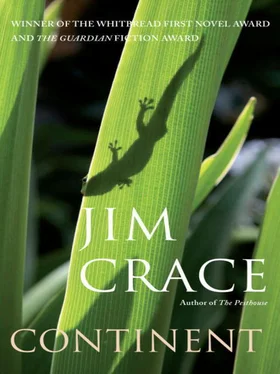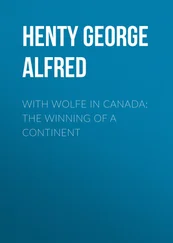‘Then what occurs at the airport? They arrest my American. They seize his parchment. They let him fester at the police barracks for a few days while they threaten him with evading their new export regulations. Control of Antiquities and Artefacts (Backdated). They insult his wife. They frighten his children. The American Ambassador makes visits to the Minister. An aid deal is agreed on. The American is released and sent back to his big house in Massachusetts. The Minister’s man visits me. “Never again,” he tells me, “sell a work of art to a foreigner. If you do, you’re in big trouble. You’re in big trouble anyway. Tread lightly.” Maybe my trading licence won’t get renewed. Maybe my passport will be required for scrutiny at the Minister’s office. Now I’ll never die in Damascus. Why? All because I am a businessman. Supply and demand.’
We went, two old men with waning dreams, to the storeroom behind the bar. There, beside the crates of cola and fruit drinks, the bottles of wine and beer, was a canvas case full of parchments. Indecipherability was the keynote to these forgeries, with every stroke over-ornate and uneven. Misplaced accents hovered uncertainly over misspelt words. All were signed with my name.
FINALLY I dreamt my dream of inspiration. I dreamt of a large gallery full of smart Europeans in their best clothes, walking slowly round the exhibits with expensive catalogues. I stood in a European suit, a young man once again, pointing out some fine detail to a beautiful woman.
‘Here,’ I was saying, ‘I have misplaced the vowel sound so that this word reads “Moon” instead of “Man”. And here are letters which do not exist in Siddilic and which no one can decipher. And there I have pressed so hard on my pen that the nib has snapped. So that sign there is not an accent but a blot.’ The woman smiled appreciatively. The gallery applauded. Rich men shook my hand. The Minister shook my hand. I saw the Syrian rinsing his toes in a wide river. I saw Sabino in my courtyard. I saw my acacia throwing out new shoots.
When I woke, the envelope of banknotes was lying unopened at the side of my bed. I dressed and hurried to the Syrian’s bar.
‘Your story moved me,’ I told him. ‘It was my fault that you lost your money. I carry the guilt.’
‘Well, maybe,’ said the Syrian.
‘Here, take this envelope. Give me the scrolls.’
The Syrian saw the thickness of the envelope and did not haggle. He promised me free tea at his bar ‘until the angels take you up to Paradise in recognition of your kindness and your honesty’. He put the envelope into his safe and hung the key on a gold chain at his throat. He put his finger to his lips. ‘Say nothing,’ he told me. ‘This is between friends.’
NOW THE Minister has his exhibits and I am working to contribute just one genuine piece of my own. My last work of calligraphy, the work which was intended to be sealed in a tube of bamboo and burned at my funeral, is now to go instead to Vienna and Paris and Chicago. It is my Sins and Virtues.
I sit at my desks, intimate and scholarly, plaiting knots of Kufic script, the stems foliated, the heads floriated. I curve patterns of letters, leaves and tendrils. Tightly disciplined parades of vertical strokes march across the parchment to come to attention at undergrowth concealing fabulous animals. Blooms and blossoms fall amongst keywords in plain geometric patterns.
I have divided the paper into four squares and there in each square is a virtue embracing a vice. I plead guilty to Lust, but I name Virginity in mitigation. I admit to Selfishness but call upon Self-Awareness in my defence. I decorate with half-palmettes the verticles of Misanthropy and list the names of those I failed to help. But I claim, too, the virtue of Tolerance and display an empty nameless list of those I ever intentionally harmed. My greatest virtue has been the virtue of Talent. I inscribe it large and plain. Simplicity is the mark of the craftsman. Talent shares its box with Deceit, the same word in Siddilic for Forgery, ‘ALL THIS WORK IS FALSE’, I have written and decorated in gold. Now my Sins and Virtues are complete. I leave the manuscript unsigned…
THE MINISTER’S man tried to persuade me to follow my exhibition to all the galleries in the world, to give talks and interviews, to be present at the great auction. But I explained that I was too frail for travel and the aide-de-camp was not insistent.
The Minister is very pleased. He came to compliment me on my exertion and to repeat his promise of luxuries in my old age. He enquired about the possibility of more works. But I explained to him Supply and Demand. Flood the market, I told him, and the price goes down.
‘You are famous worldwide,’ he said, sitting at the end of my bed, watching the gecko in the folds of my bed sheet. ‘Our country is now highly regarded. Art is important in Europe and America.’
He rose to leave. ‘One small point,’ he said. ‘There is one parchment which is unsigned…’
‘Does it matter?’
‘For the price, the value, that’s all. Art buyers like to know that they are buying the genuine article. If there is no signature…’
‘Sell that one cheaply, then,’ I suggested. ‘That is good practice in business, too, to have something cheap amongst the more expensive.’
‘Excellent,’ said the Minister, ‘You are more worldly than I had imagined.’
I HAVE left instructions with the Syrian and with Duni, the ironmonger, and all those that know me in the market, that when I die they should burn my body and take my ashes in a vase to the village of my uncles. There they should bury me beneath the acacia. Duni asked me about my Sins and Virtues, but I explained that I had lived such a solitary life that I had none.
‘What, not even a little minor failing once in a while?’ he asked.
‘No, nothing,’ I said. ‘My conscience is clean.’ The sin-lister, I reminded him, must be free from sin. It is the custom and the regulation.
I PASS between my various desks with very little purpose now. Occasionally I take out ink and paper, just for old times’ sake, and doodle for a while. But I am not interested in letters. The quest for Meaning in Form belongs to an age long past. I often draw a forest of trees, almost bare and leafless, with the moon hovering on the horizon. Is it dawn or dusk? Soon we all shall know.
‘NEGLECT,’ says Awni, the Rest House warden. ‘For one hundred years we have been neglected. Now we are remembered!’ And who claims credit? Warden Awni does. ‘My petitions worked the trick,’ he says. He displays carbon copies. Anyone is welcome to read his fawning paragraphs, to ministers and civil servants. Now the town supplicant has turned braggart. ‘You will be pleased to learn that electrical power is to be installed in your town during the Dry,’ informs the framed ministerial letter which Awni has tacked to the veranda wall. The Rest House is amongst the first dozen buildings to be equipped with sockets and fittings.
We know better. Awni’s petitions are not the cause: they are too frequent and too dispersive. He petitions for a road surface, for a petrol licence, for a landing strip, for the removal of the schoolteacher (‘Honoured Minister, we have amongst us one who, like a kittle beetle, disseminates anxiety…’). He petitions for a transfer elsewhere, to the town or the coast or the salt lake resorts. He is ignored. No, it is the Minister’s personal secretary who deserves our gratitude. His neighbour is landowner Nepruolo. They own adjacent houses in the city’s New Extension. They have vacation cottages on the Mu coast. Their wives are stalwarts of the same club; their children bicker at the same school.
We can construct their conversation: Nepruolo calls upon his neighbour to present a basket of fresh candy gourds ‘grown on my land in the Flat Centre’. Our land. ‘They would be larger and sweeter,’ he says, as the Secretary’s children sever the fruit from the creeper and slice the crisp white flesh. ‘But … well, do not let me bore you with farming talk. Without good water pumps during the Dry, the gourds take siesta. Electric pumps are best, but we do not have electricity, so … small fruit.’ The Secretary squeezes a lime over his crescent of fruit and commiserates: ‘I should not want land there without electricity … but if there were electricity then the thought of a small gourd farm with a comfortable lodge is attractive.’ ‘Land I can provide cheaply to a friend and neighbour,’ says ‘Nepruolo. Electricity I cannot.’ The Secretary enjoys his fruit. Soon he will have larger, sweeter candy gourds of his own. He will add another document to the Minister’s endorsement file, with a pencilled cross for his signature. He will stamp the document ‘PPi’ (top Project Priority) and then he will talk terms with Nepruolo.
Читать дальше












